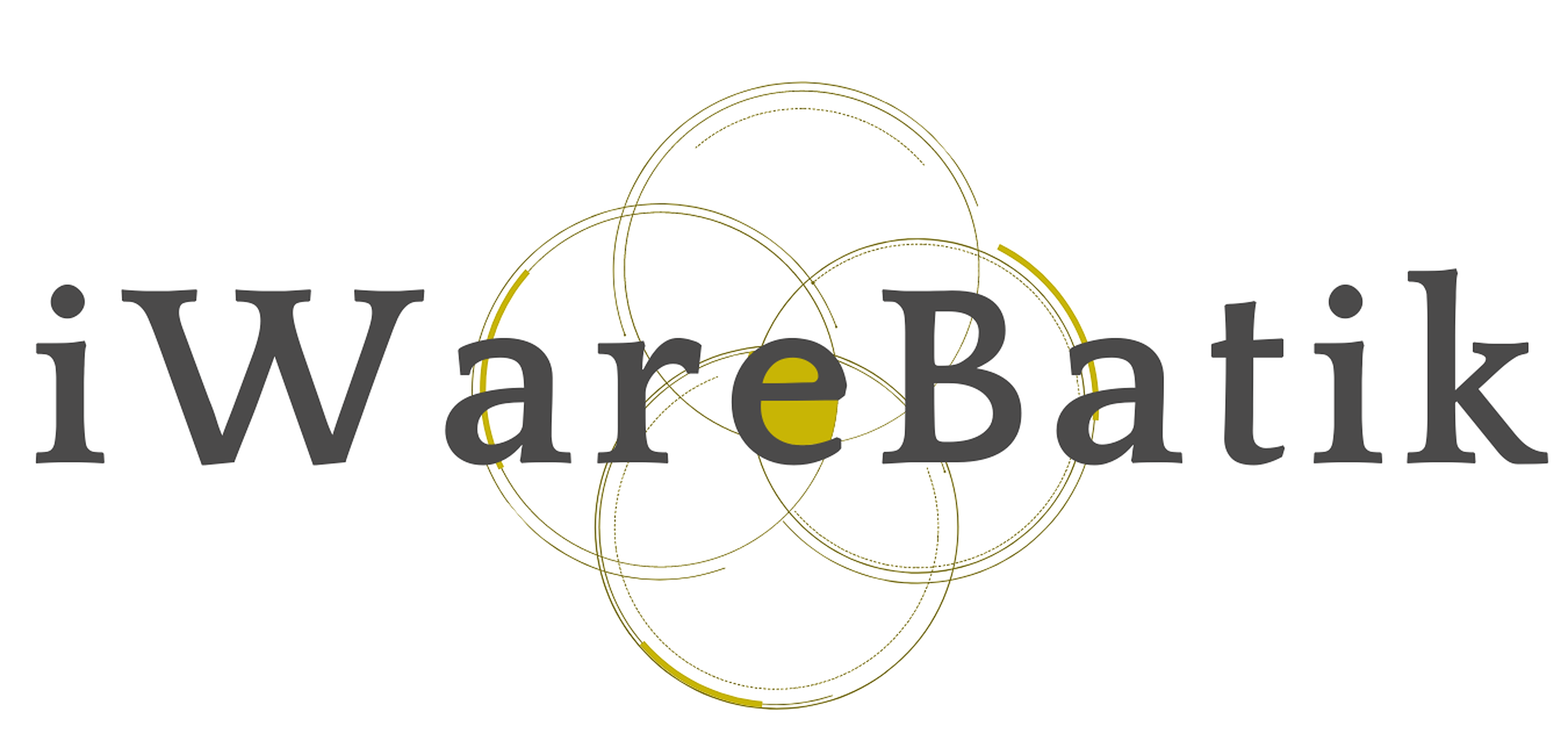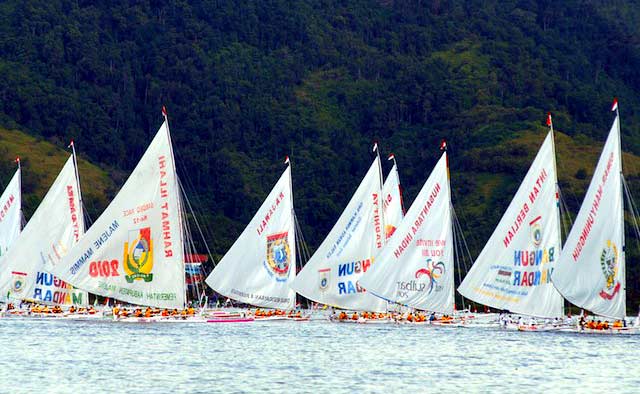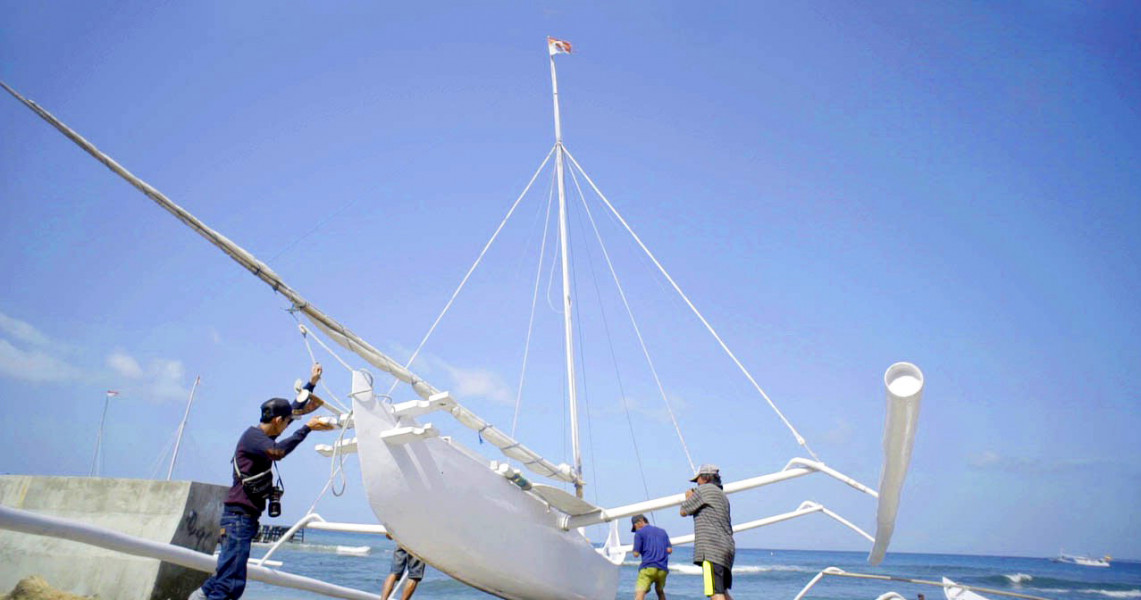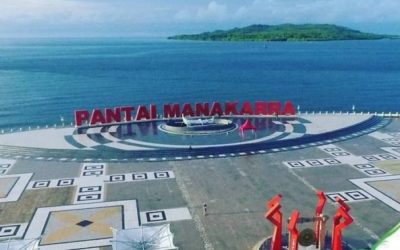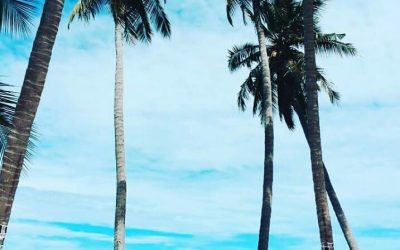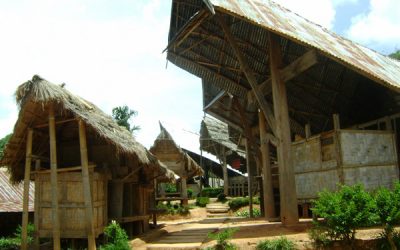Home / Batik Regions – Central Indonesia – Sulawesi Island – West Sulawesi / Sandeq Race Festival
Cultural Destination
Sandeq Race Festival
Sandeq Race (Photo: @disbudparpolman)
Sandeq Race Festival – the Legend of the Fastest Wooden Boat
Could you believe if there is a wooden boat that sails in 15-29 knots (28-56 km/h) of wind speed without any electrical engine? Sandeq boat is the fastest wind boat since 1000 BC. This boat making construction technology is one of craftsmanship legacy of Mandar tribe in West Sulawesi. The ancestor of Mandar tribes are known as one of the strongest and the oldest sailor tribes in Austronesian archipelago. The Sandeq Race Festival is held annually in August-September as cultural events to revive and valorize such remarkable cultural heritage. The festival also offers many cultural events at 8 Sandeq etape destinations, starting from Mamuju city to Makassar city. Around 40 Sandeq teams participate in the competition to prove their talent in wind sailing. Come and join this unique cultural sport event!
Cultural Tourism Destination
Sandeq Race Festival
Tourist Attractions in West Sulawesi
Manakarra Beach in Mamuju
Located in the center of Mamuju City, this beach is a unique landmark with an outstanding
Palipis Beach
If the main objective of your vacation is to escape from
Balla Peu Village
For all the people interested in rural culture, this place will give them the opportunity to
West Sulawesi
Batik Motifs
Rumah Mamuju
the Batik motif illustrates the house of Mamuju King with the stairs, located on the left of the wooden stage house
Sandeq
Sandeq Boat is a symbol of the maritime importance of the West Sulawesi region. The greatness of
Sekomandi
Its philosophical meaning is the eternal union which refers to a saying “until death do us part”
Lipaq Sabe
Lipaq Saqbe contains a simple geometric classical motif with various flower decorations. This textile is
Discover
Indonesian
Batik
Motifs
Karawo Mahkuta
Mahkuta refers to Gorontalo’s traditional crown. It represents noble characters of
Gonggong Siput
Gonggong (Strombus Turturella) is one type of sea snail found around
Rumah Mamuju
the Batik motif illustrates the house of Mamuju King with the stairs, located on the left of the wooden stage house
Sekomandi
Its philosophical meaning is the eternal union which refers to a saying “until death do us part”
Tampuk Manggis Sasirangan
The motif illustrates the philosophy of the mangosteen fruit, which is
Gurdo Solo
Gurdo or garuda bird is the mount of the Indian god Vishnu. As the Sun Bird,
Malinau Cultural Festival
You will witness a unique competition that might not be found other than in
Pinawetengan
The Pinawetengan Batik pattern was taken from a prehistoric inscription in
Buketan Bali
The Balinese bouquet (Buketan Bali) is a floral arrangement and the name is
Srimanganti
The name of the Srimanganti motif is derived from Palace’s hallway that connects to
Tangerang Herang
Tangerang Herang motif is a symbol of Tangerang city. The Tangerang Herang batik motif consists of
Parang Seling
Parang Seling or “alternating daggers” is a royal batik motif. It is a feminine variant of
Dayak Kamang
Kamang motif is generally found in the Dayak tribe shield because it is believed to
Burung Bidadari
Bidadari birds are endemic birds in Halmahera. This motif represents an
Sekar Jati
Sekar means flower and Jati refers to teak trees that symbolizes a strong mental character that
Gajah Way Kambas
The motif illustrates the Lampung’s natural reserve, the Way Kambas. it also symbolizes
Leuit Sijimat
This motif reflects the daily activities of the Baduy tribe in Banten. The main ornaments of batik motif consist of:
Gigi Haruan Lidi
The Gigi Haruan Lidi motif is taken from the name of the cork fish and is a symbol of
Tongkonan
Toraja’s traditional house is called Tongkonan. Tongkonan is a place for
Gonggong Beruntun
This motif illustrates that a person should maintain a positive attitude and
Tikar Natuna
The Tikar Natuna motif is adapted from the traditional making of pandanus mats in
Daun Simpor
This motif is inspired by the Simpor plant (Dillenia Suffruticosa) which is a typical
Pucuk Rebung Riau
Pucuk Rebung symbolizes heart determination in achieving goals, good luck, and
Tengkawang Ampiek
With its many advantages, the Dayaks use this leaf in ritual ceremonies. This plant is a symbol of
Pohon Hayat (Tree of Life)
The Batik motifs in Lampung are dominated by the acculturation of Buddhist and
Paqbarre Allo
The word “Barre” means round and “Allo” means the sunlight. This motif is interpreted as
Daun Sirih
This motif illustrates betel leaves that are used by Lombok communities as traditional
Teguh Bersatu
This batik motif shows the strength of the people of Kupang. It also represents a sense of
Dayak Taghol
Dayak Taghol has a distinctive style of four curved lines and small dots. This motif represents
Kasih Tak Sampai
‘Kasih Tak Sampai’ is an idiom in the Indonesian language which refers to
Pati-Pati Pinehiku
It symbolizes the hierarchy in society and the social status of the Mekongga
Prada Papua
The word “Prada” in the Javanese-Indonesian dialect means a batik textile that
Angsa Duo
According to legend, the Angso duo batik motif is a pair of swans that are believed to have led Princess
Tabir Tanjung
Tanjung flower is a type of Cherry tree flower, which is commonly found in
Wakatobi
It symbolizes the coastal beauty of the Wakatobi island and the symbol of Patra symbolizes
Awan Berarak
Awan Berarak is a combination of Dayak motifs and Malay patterns. The word ‘Awan Berarak’ means the
Kain Cual
Cual textile tradition has existed since the 17th century. The word “Cual” refers to
Ake Patra
Ake is related to the divinity and the composition of the universe. It is a symbol of
Tanah Liek
The word “Tanah Liek” refers to clay in Minang language. It is also known as
Jupri Kembang Teh
Kembang Teh illustrates the tendrils of tea plants that grow in the highlands of
Besurek Rafflesia
The term “Basurek” refers to a textile that contains letters or inscriptions
Kerawang Tegak Aceh
The Vertical Upright (Kerawang Tegak) Motif symbolizes a person who has a strong
Pala Salawaku
This motif illustrates the unique weapons of the Maluku region, namely
Taiganja
Taiganja is a precious gold pendant that shows the social status of the Kaili family. It is
Bultiya
The word ‘Bultiya’ is an acronym of the three major tribes in North Kalimantan, namely
Gorga Simeol-Meol
The Gorga Simeol-meol is a pattern of plant tendrils. it is regarded as a symbol of longevity and
Wirasat
Wirasat or divine inspiration is a gift from God. This inspiration is symbolized by
Karawo Pinang
Pinang refers to the Palm areca tree. This motif is considered as the original
Bintik Tujuh
The Bintik Tujuh (Seven Dots) motif has 7 white spots and green color gradation as
Salakanagara
Salakanagara batik motif illustrates the first kingdom in the Betawi land
Merak Ngeram
The hatching peacock motif has a very deep meaning which refers to the sacrifice and
Kaganga Tanah Rejang
If Batik Besurek combines Arabic calligraphy motifs, then the Kaganga batik takes
Sero Tangga
The Sero Tangga illustrates an endearing feeling and sacrifices of a person to fulfil
Ikan tambal
The word “Ikan” refers to fish. The philosophical meaning of Ikan Tambal means is
Gamolan
This motif illustrates Gamolan, a bamboo musical instrument of Lampung that is
Tubo Kelapa
Coconut tree is a symbol of a good character and strong mentality. It illustrates the more success a person, the more
Enggang Dayak
Local people beliefs that hornbills are an incarnation of the Commander of the Birds. It has supernatural
Raja Ampat
Raja Ampat motif represents the marine life at Raja Ampat archipelago in
Insang Ikan
Insang refers to the gills of the fish. This is a typical pattern of Malay ethnic who inhabits
Manguni Minahasa
Manguni is identified as the symbol of the Minahasa people. Manguni is known as a
Tifa Totobuang
The batik motifs illustrate Maluku’s traditional music instrument called
Besurek Rembulan
This batik illustrates praise for God who created the wonderful universe
Jumputan Bintang
The word Jumputan means the tie-dye technique, while the word “Bintang” refers to
Mahkota Siger
Siger is the crown of a noblewoman in ancient time. It is a symbol of femininity, strength, and
Rangkiang
The word “Rangkiang” refers to the rice granary in the Minangkabau language. It symbolizes
Bekantan Pakis
This motif represents Pakis Haji (Polystichum setiferum), an endemic plant in
Pattimura
Pattimura is the name of an Indonesian hero who fought against colonialism in
Sandeq
Sandeq Boat is a symbol of the maritime importance of the West Sulawesi region. The greatness of
Keluak Daun Pakis
The word “Keluak” is a Minang language which means twisted or tangled. The Motif of
Bomba Mawar
This motif means sacred love for family, kingdom, and God; It also illustrates
Bale Lumbu
This motif signifies the welfare of the ancient Sasak society. Bale also symbolizes the
Gumin Tambun
Based on Hindu mythology, this motif symbolizes lucks, abundant wealth, and
Desa Na Tolu
The Desa Na Tolu characteristic pattern symbolizes the Batak philosophy of existence and
